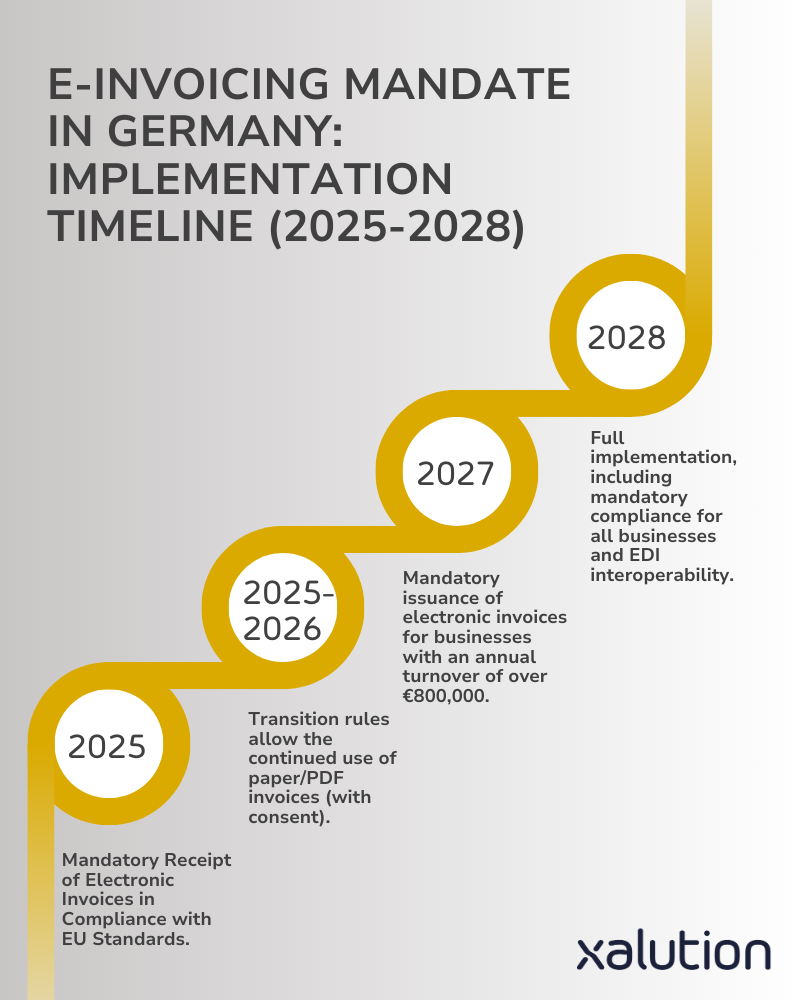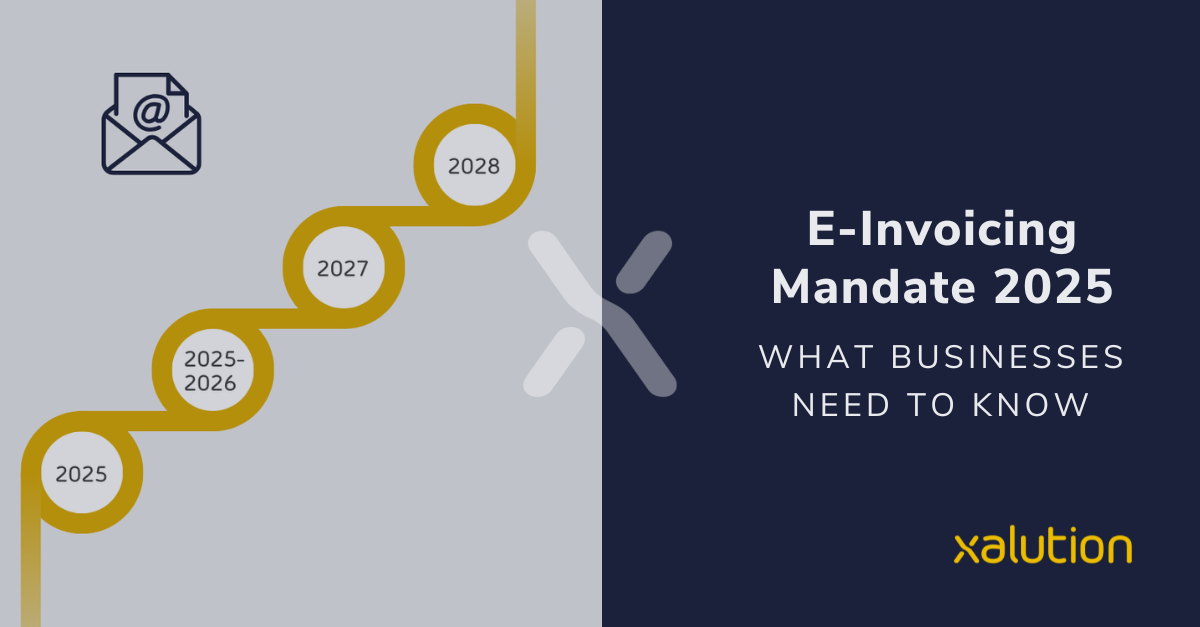Mandatory E-Invoicing from 2025: What Businesses Need to Know
Starting January 1, 2025, Germany will require the use of electronic invoices (E-Invoices) as part of the Introduction of the E-Invoicing Mandate 2025. This initiative aims to make invoice exchange more efficient, secure, and environmentally friendly. Below is an overview of what this change means for businesses and how it can be implemented.
What does the e-invoicing mandate entail?
The new regulation requires businesses to create, transmit, and process invoices in a structured electronic format, such as XML. An E-Invoice must be machine-readable to enable automated processing. This means E-Invoices will completely replace paper or PDF invoices, which previously required manual handling.
Who Is Affected by the E-Invoicing Mandate?
The mandate applies to all taxable businesses in Germany that issue, receive, or archive invoices in the B2B (Business-to-Business) or B2G (Business-to-Government) sectors. Exceptions include:
- Invoices under €250 (§ 33 German UStDV),
- Transport tickets (§ 34 German UStDV).
Invoices issued to private customers (B2C) are not subject to the mandate. Businesses should also note that the invoice issuer must select the appropriate XML format, which the recipient must be capable of processing.
Implementation Timeline
The mandate will be introduced in several stages:
- From 2025: Businesses must be able to receive electronic invoices compliant with EU standards.
- 2025–2026: Transition periods allow the continued use of paper and PDF invoices.
- From 2027: The use of non-compliant formats will be gradually restricted. These may only be used if explicitly agreed upon by the business partners.
- From 2028: EDI connections that are not fully interoperable must be replaced by standard-compliant formats.

Approved Formats for E-Invoices
In Germany, the following formats are widely used:
- ZUGFeRD (Version 2.0.1 or later): A hybrid format that combines PDF and XML, allowing for easy integration into existing systems.
- XRechnung: A fully XML-based format designed primarily for invoicing public sector entities.
Both formats comply with the CEN standard EN16931, enabling automated processes. At the EU level, the PEPPOL standard is increasingly used as an interoperable network for cross-border invoice exchange.
Potential Consequences of Non-Compliance
Businesses that fail to comply with the E-Invoicing mandate may face the following consequences:
- Fines: Depending on the severity of the violation, fines may reach several thousand euros.
- Contractual Penalties: Particularly relevant for contracts with public sector clients.
- Exclusion from Public Tenders: Non-compliance may disqualify businesses from bidding for public contracts.
- Operational Inefficiencies: Continued reliance on manual processes could lead to reduced competitiveness.
How Can Microsoft Dynamics 365 Help?
Microsoft Dynamics 365 Finance & Supply Chain Management provides businesses with a flexible platform to meet the requirements of the E-Invoicing mandate:
- E-Invoice Creation: Supports XRechnung Version 3, PEPPOL, and other regional formats.
- Processing Incoming Invoices: Enables seamless processing directly in Dynamics 365 or through integrated Document Management Systems (DMS).
- Interoperability: Offers dynamic adaptation to industry-specific and regional requirements.
Conclusion
While the transition periods until the end of 2026 provide some breathing room, early preparation is critical to ensure a smooth implementation of the E-Invoicing mandate. Businesses should evaluate their systems and processes to ensure compliance and enable the efficient transition to E-Invoicing. This is not just a legal obligation but also an opportunity to modernize internal processes and achieve greater long-term efficiency.
Do you have questions about the E-Invoicing mandate or its technical implementation? Just contact us.
